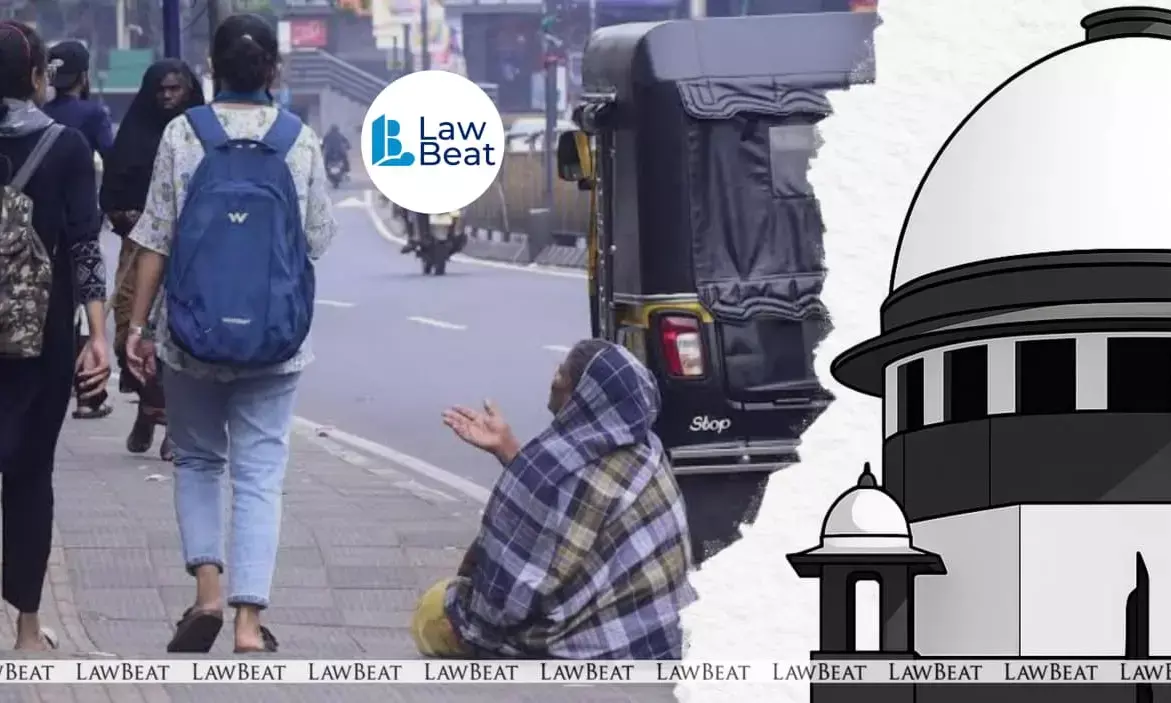SC Orders Reforms in Beggars’ Homes, Says Poverty Cannot Be Penalised

The Supreme Court of India orders humane conditions and reforms for beggars’ homes in the country
The Supreme Court on September 12, 2025, observed that while laws may be necessary for States to regulate begging, maintain public order, and ensure rehabilitation of vulnerable persons, their framing and implementation must remain consistent with constitutional guarantees. The court stressed that regulation cannot become a means of criminalising poverty and must uphold individual dignity and constitutional morality.
A bench of Justices J.B. Pardiwala and R. Mahadevan held that the constitutional evaluation of beggars’ homes requires a shift from treating them as tools of social control to recognising them as spaces of social justice. Court said that failing to maintain humane conditions in such institutions is not merely maladministration but a constitutional violation of the right to live with dignity, warranting judicial intervention.
Directing all States and Union Territories to institutionalise reforms in beggars’ homes and similar establishments, court underlined that the constitutional guarantee of life with dignity must be effectively realised for this most vulnerable section of society. It emphasised that the State’s responsibility towards indigent persons is affirmative and non-derogable.
"A beggar’s home, maintained by the State, is thus a constitutional trust, not a discretionary charity. Its administration must reflect the values of constitutional morality – ensuring liberty, privacy, bodily autonomy, and dignified living conditions,'' the court said.
Court referred to its earlier ruling in Inhuman Conditions in 1382 Prisons, In Re (2016), which recognised that even prisoners are entitled to basic human rights, including dignity.
"If such protections are owed to convicts and undertrials – individuals lawfully deprived of liberty pursuant to criminal conviction or prosecution – a fortiori, they must apply to residents of beggars’ homes, who are not offenders at all,'' the bench said.
Noting that many beggers are victims of structural poverty, abandonment, mental illness, domestic violence, caste discrimination, or social exclusion court clarified that their confinement, if at all necessary, should amount to protective custody combined with rehabilitation services rather than coercive detention.
The bench also examined the Bombay Prevention of Begging Act, 1959 (BPBA), which was enacted in Maharashtra and later adopted or adapted by several States and Union Territories. Its enforcement, however, varies widely, and its constitutional validity has been repeatedly tested in courts. Since there is no central law, many States have enacted their own provisions.
"The State undeniably has a legitimate interest in maintaining public order, safety, and cleanliness. Begging in public spaces may cause obstructions, harassment, and unsanitary conditions, thereby impacting citizens’ rights to move freely and enjoy public areas,'' it said.
It added that while the BPBA sought to provide shelter, medical aid, vocational training, and rehabilitation, begging is sometimes linked to trafficking, child labour, and organised exploitation, requiring State intervention for victims’ protection.
The observations came in a plea by M S Patter challenging a Delhi High Court judgment of July 8, 2003, concerning the death of beggars in custody.
The Supreme Court noted that it had earlier issued multiple directions for improving conditions in beggars’ homes and that authorities had largely complied. “The progress must not remain confined to homes scrutinised in this case but extend to all such institutions under the Government of NCT of Delhi,” the bench said.
Issuing fresh directions, court ordered continuous monitoring of improved standards across all beggars’ homes in the country. These included measures on preventive healthcare, sanitation, infrastructure, food safety, vocational training, legal aid, gender sensitivity, and accountability.
Court also directed State governments and Union Territories to maintain a centralised digital database of all inmates, recording details of admission, health, training, release, and follow-up. The directions are to be implemented within six months. Further, the Union government, through the Ministry of Social Justice and Empowerment, has been asked to frame and notify model guidelines within three months for uniform implementation nationwide.
Case Title: M S Patter Vs State of NCT of Delhi & Ors
Judgment Date: September 12, 2025
Bench: Justices JB Pardiwala and R Mahadevan
